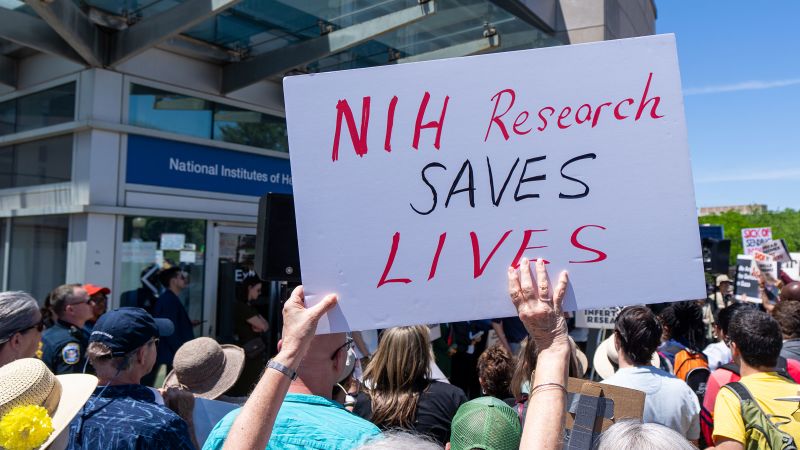The House on Thursday gave final passage to a bill focused on preempting potential federal changes to public health and reproductive care policy.
The legislation includes sections that would codify into state law current federal guidance for fluoride in drinking water and create accounts to be tapped in the case of federal cuts to public health funding.
The Senate voted last week 25-10 to pass the bill, with one legislator missing the vote. The House vote Thursday was 92-55, with four representatives absent from voting.
“Public health is a little bit like a submarine, where it’s a lot beneath the surface and things we take for granted. I think there are a lot of things in this bill that help secure some of the things we take for granted,” Rep. Cristin McCarthy Vahey, D-Fairfield, co-chair of the Public Health Committee, said following the bill’s passage.
However, the version that passed through the House removed a section that would have allowed for the establishment of safe injection sites because of opposition from Governor Ned Lamont.
According to House Speaker Matt Ritter, the governor’s staff communicated to him that Lamont would veto the entire bill if the section were included. At a press conference yesterday, the governor denied that he had made such a decision. But this morning Ritter said that’s not what he’d heard from Lamont’s staff.
“It was communicated to us and to the Senate that he would veto it by his chief of staff last night,” Ritter said. “I know there was this confusion yesterday. We have never been under any confusion in the House. We were told five days ago what he was going to do.”
Safe injection sites, also known as safe consumption sites or overdose prevention centers, are facilities where people can bring illegal substances to use under the supervision of trained staff in a clean environment with access to safety supplies, like clean needles and naloxone, a medication used to reverse opioid overdoses. The bill referred to “overdose prevention centers,” which is a term used by advocates to reflect the broader services offered, including medical referrals and other social services.
McCarthy Vahey called the removal of the measure “gut wrenching,” but said she’s already thinking about how to implement the policy successfully in the future.
“I start today thinking about how we can plan going forward. Because we absolutely have to address the deaths in our state. This is a policy that I believe will work. And so how do we get more people on board?” McCarthy Vahey said.
Reproductive care
The legislation also contains provisions that would bolster access to reproductive care in the state.
It would require hospital emergency rooms to provide services related to pregnancy complications, including miscarriage management and ectopic pregnancies, if they are necessary to treat the patient.
It also creates a trigger to guarantee in Connecticut a federal right to emergency services under a law known as the Emergency Medical Treatment and Labor Act, commonly referred to as “EMTALA.” If the federal government makes any changes to revoke EMTALA, or enforce it to a lesser degree, the DPH commissioner can adopt EMTALA provisions into DPH regulations — an attempt to guarantee EMTALA rights and enforcement in Connecticut, even if the federal government makes changes to the law.
Rep. Jillian Gilchrest, D-West Hartford, during the floor debate said the measure is necessary, given the changes to federal interpretation of EMTALA. The Trump administration dropped a case brought by the Biden administration against Idaho, which argued that hospitals had to provide emergency abortion care, despite the state’s abortion ban.
“By dismissing that federal lawsuit against the state of Idaho, this means that there is no federal enforcement of EMTALA when hospitals do not provide the abortion care necessary to stabilize a patient’s health,” Gilchrest said.
Another provision would create a “safe harbor” account to pay for expenses, like food, lodging and meals, for people coming to Connecticut from other states to receive reproductive and gender affirming care. The fund would be managed by the state Treasurer and awarded as grants to nonprofits that provide reproductive and gender affirming care services. The fund would accept only private donations and would not include public money.
The measure elicited the strongest opposition from Republicans, who argued that even if the funds were private, the measure made use of taxpayer resources because of the work required by the Treasurer and his staff.
“How does an elected official for the state of Connecticut collect donations from private providers then use his state-paid time and his staff’s state-paid time to invest them to create a profit to then give that money to a nonprofit who will distribute it as they see fit?” Nuccio said.
Several representatives also raised concerns about using government resources to manage funds for people outside of Connecticut. Others questioned why the fund was going toward reproductive services and not another issue in need of financial support.
Rep. Jay Case, R-Winchester, along with other Republicans, raised an amendment to change the recipients of the grants from nonprofits providing reproductive health services to those providing homelessness services. The amendment failed 48-99, with four legislators absent and not voting.
McCarthy Vahey acknowledged the many other needs that could use more funding, but said supporters were making a specific policy choice with this legislation.
“There are absolutely a lot of things that we would all like to prioritize. The choice in this bill was to recognize that there are vulnerable people in places where it’s not legal to get safe and accessible health care,” she said.
Public health and other measures
The omnibus bill seeks to preempt several changes to public health policy by the Trump administration: It contains provisions to guarantee in state law the current federal standard for the level of fluoride in drinking water; allows the commissioner of the Department of Public health to create an advisory committee related to recommendations by federal public health agencies; and it creates accounts to shore up funds for public health emergency communications and in case of federal cuts to public health funding.
Several Republicans questioned why the bill was attempting to legislate for federal changes that hadn’t yet happened.
“I think the theme of the 2025 legislative session is ‘just in case,’” Rep. Nicole Klarides-Ditria, R-Seymour, ranking member of the Public Health Committee, said during the floor debate. “Just in case something happens in Washington, just in case the President does something. And, while I’m concerned about certain things, I don’t think we should legislate just in case.”
Democrats pushed back on the “just in case” notion during the floor debate, saying there are federal changes that are already happening. McCarthy Vahey also said the measures provide some predictability amidst a chaotic federal environment.
“It’s about providing consistency and predictability for the people of our state, for our water companies, for our public health officials locally,” McCarthy Vahey said.
While the bill creates emergency accounts to shore up funds for emergencies, it doesn’t appropriate any funding to go into those accounts. McCarthy Vahey said, despite the lack of funding, the accounts serve as an indication of priorities.
While the sections addressing potential federal changes sparked a clash between parties, several of the other measures received bipartisan support.
Multiple Republicans spoke in favor of the creation of a program to promote and provide referrals for pancreatic cancer screening, as well as a section that requires the correction ombuds to evaluate health care services provided by the Department of Correction to people who are incarcerated in the state.









 English (US) ·
English (US) ·